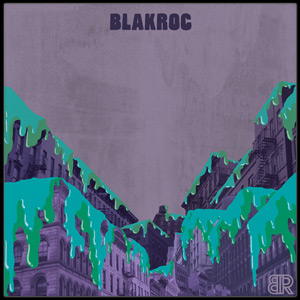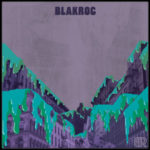
The day I was asked to review the Black Keys’ new album, Blakroc, a collaboration between the Ohio rock band a series of guest rappers, I was in the middle of grading a student paper that quoted me directly: “To say rappers are musicians is to say Guitar Hero players are guitarists (Kleinman).” I’ve made this assertion time and again with myriad flourishes of language, and I stand by it. It is an assertion for the objective-critical world, and the fucking problem with it is very few people buy and listen to music as the result of a deliberate and methodical thought process. Music, like religion, should be subjective, irrational, and extempore. We like what we like. If it gives us pleasure, then who cares what some critic says is “good” or “influential.” Critics write for other critics, trying to impress them with their ability to paraphrase Bukowski while referencing the abstrusist of all skinny whiteboy bands. Who fuckin’ cares what some bespectacled pudgster says when Ludacris tells us about a female person named Anna who was from Alabama and had a “Cooch that had me drivin’ back and forth from Atlanta”?
The problem is when I hear words in English, I interpret them. If you can sing like James Brown, I don’t care what words you use, but when you can only rap like the RZA, this idea just doesn’t cut it: “If it don’t make money, it don’t make sense.” That is embarrassingly naïve and uninformed. You don’t have to know too much about Google to know money was the last thing on their mind when they started that company. But it’s all in good fun, you say. Check the wicked instrumental tracks the Black Keys created, you say. I’ve tried time and again to focus on the guitar and drums, and hear the rappers as just another drummer, but words like “bitch” and “niggah” leap out and pling my cringe reflex.
This album is Damon Dash’s attempt to gain cred on streets other than those tread by suburban white kids by pairing Raekwon, Q-Tip, ODB, Jim Jones, and others with darlingest of all current critical darlings, the Black Keys. Mr. Dash, I think you and Jay-Z should continue to do what you do. I wish you all the financial success in the world, but rap isn’t art. How can I say that? Alright, I’ll take it back, but if rap is art, then William Shakespeare is the greatest rapper ever. I like Mos Def as an actor and a celebrity, but Walt Whitman, he is not.
Realizing with the above, I took a harsh swipe at a musical project that (at the very least) involves one of the justifiably most critically praised groups of the past so many years, the Black Keys, I cover my bases by spending a sunny Sunday on my porch listening to Blakroc and reading modern poetry. I scan my book—rectangular objects that contain information—shelves, and pick Chicago poet Paul Hoover’s Totem and Shadow, the spring/summer 2000 edition of the New Orleans Review, and Infinity Blues by Ryan Adams. I won’t bore you with poetical analysis, but I will say the loudest message I received switching between each book and listening to Blakroc four times is this: the lyrics on this album are shoveled out of a putrid pit of mediocrity and left to stink in the hot sun, decaying next to the tight, tight playing of the Black Keys. Take any line from Blakroc and put it next to a line like this: “Red lilies make children pregnant with old mythologies like harmony and sense. Therefore, I sit on the porch of November with my usual violent associates, wind, rain, sleet, and hail, observing the livid scene beyond that fading vase.” There is no comparison. Spend three weeks with Adams’ poem “Electric Blue” and then listen to “Tellin’ Me Things” six times in a row. If you understand the English language, you understand one of these things is sophisticated and insightful, and the other is a boring story about some dude and his bitch.
Check this line by Czech poet Ivan M. Jirous: “Oh God in Thy glory all wreathed with flags and banners and clad in purple cloaks, why don’t you let me write like Charles Bukowski? Why did you make me just a prick?” I sat and read the poem it comes from, “To V.B. and His Marie,” about fifty times in the Jewish cemetery in Prague while the bugs crawled over Kafka’s grave and the fat American tourists frowned at my potent Dutch spliff. Nearly a decade later, its resonance is all the more powerful, its use of language all the more beautiful, and its thoughtfulness all the more intangible. In eight years, will this line still have a deep impact on anyone’s life? “Your heart is super cool.” It sounds like something from a middle school yearbook: “Gee thanks, your heart is super cool, too!!!!!! Have a GR8T summer!!!!!!!” If this music gives you pleasure, let it be so. If it makes you feel cool or stoned or whatever, let that be as well. Buy it, then buy it again for good measure, but don’t go mistakin’ it for art.



No Comments comments associated with this post